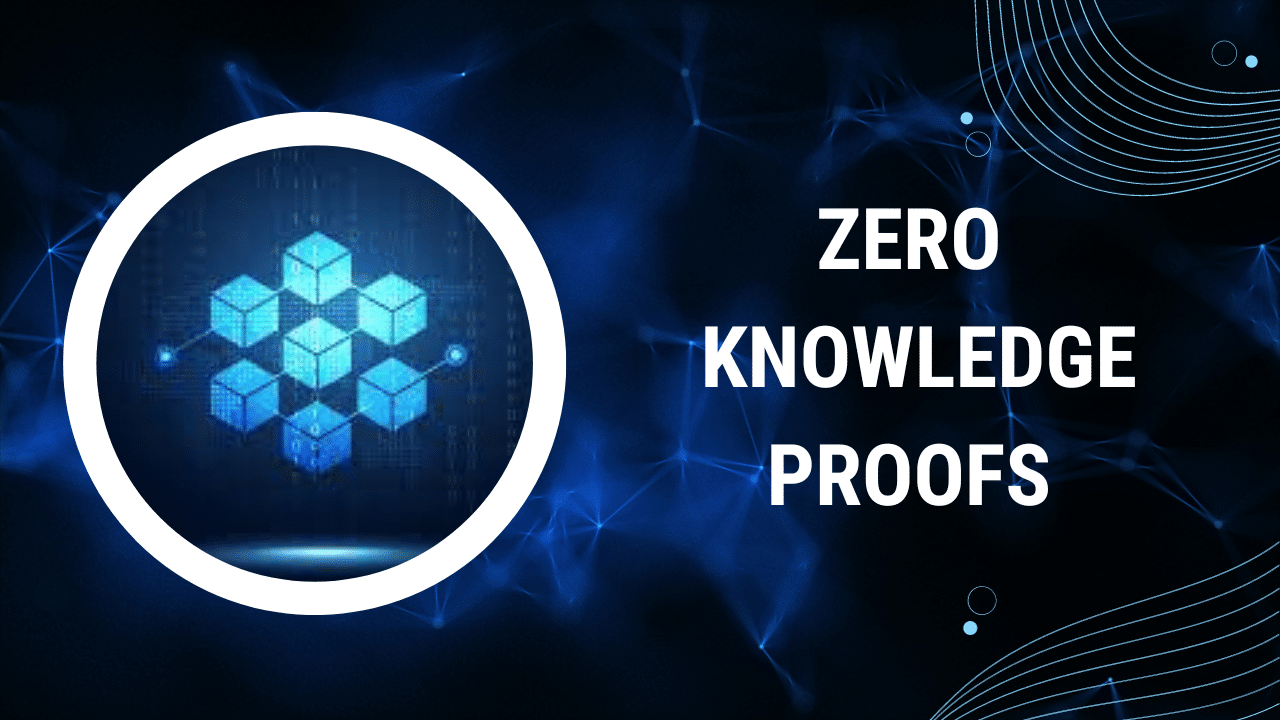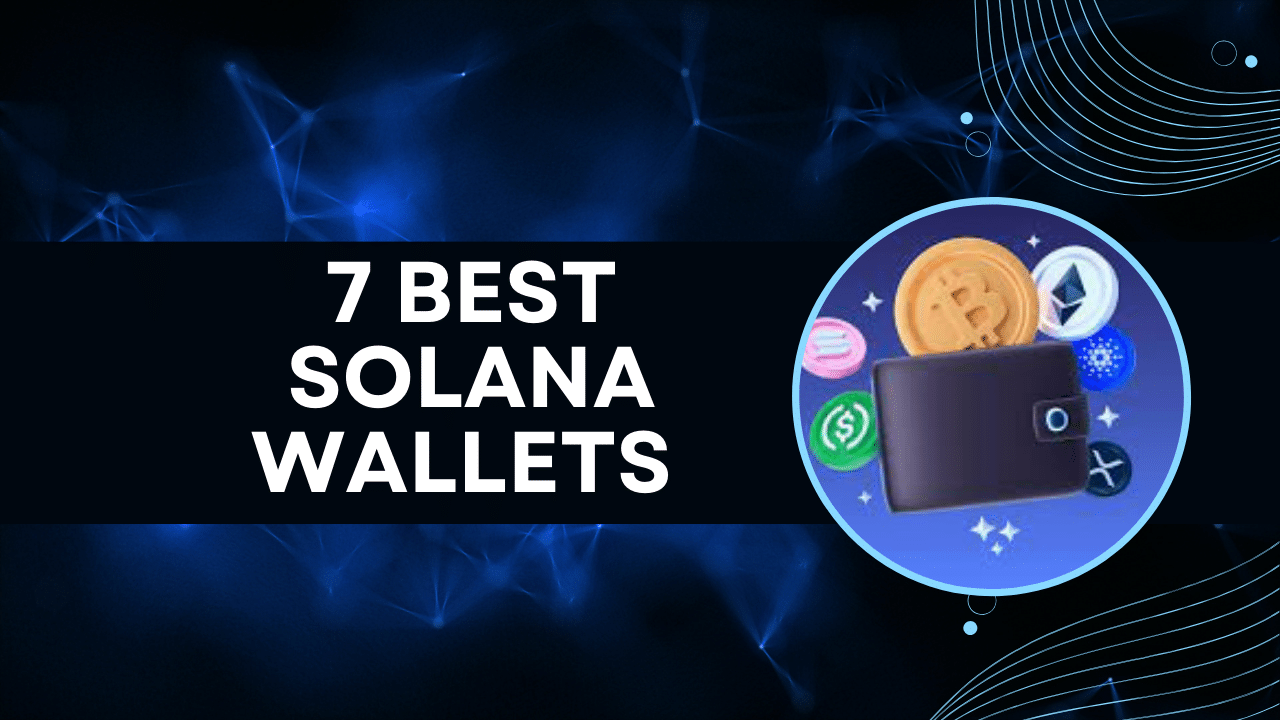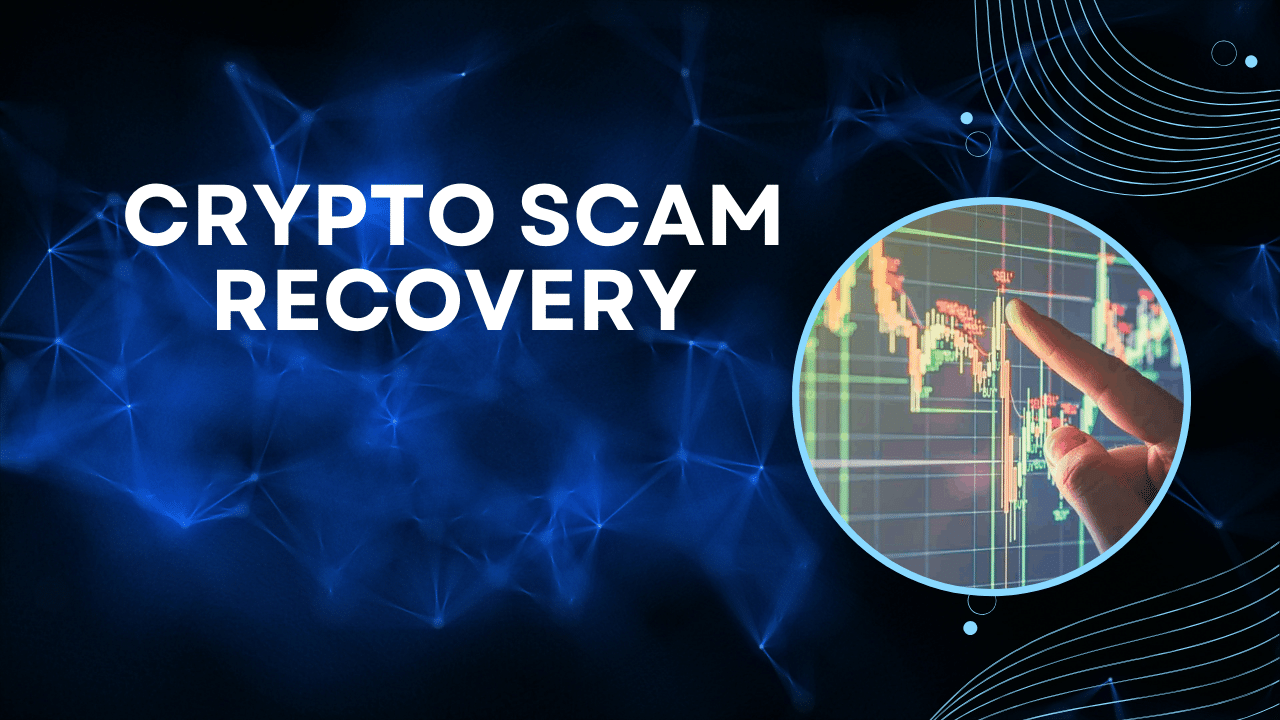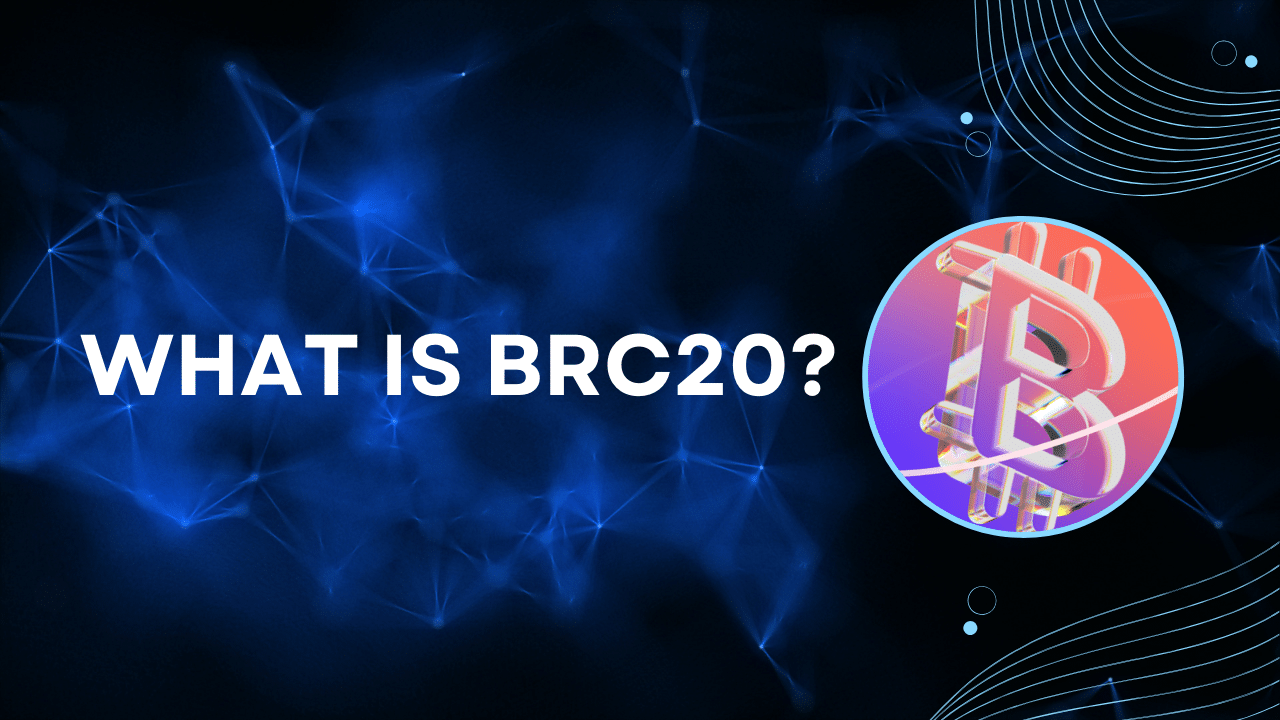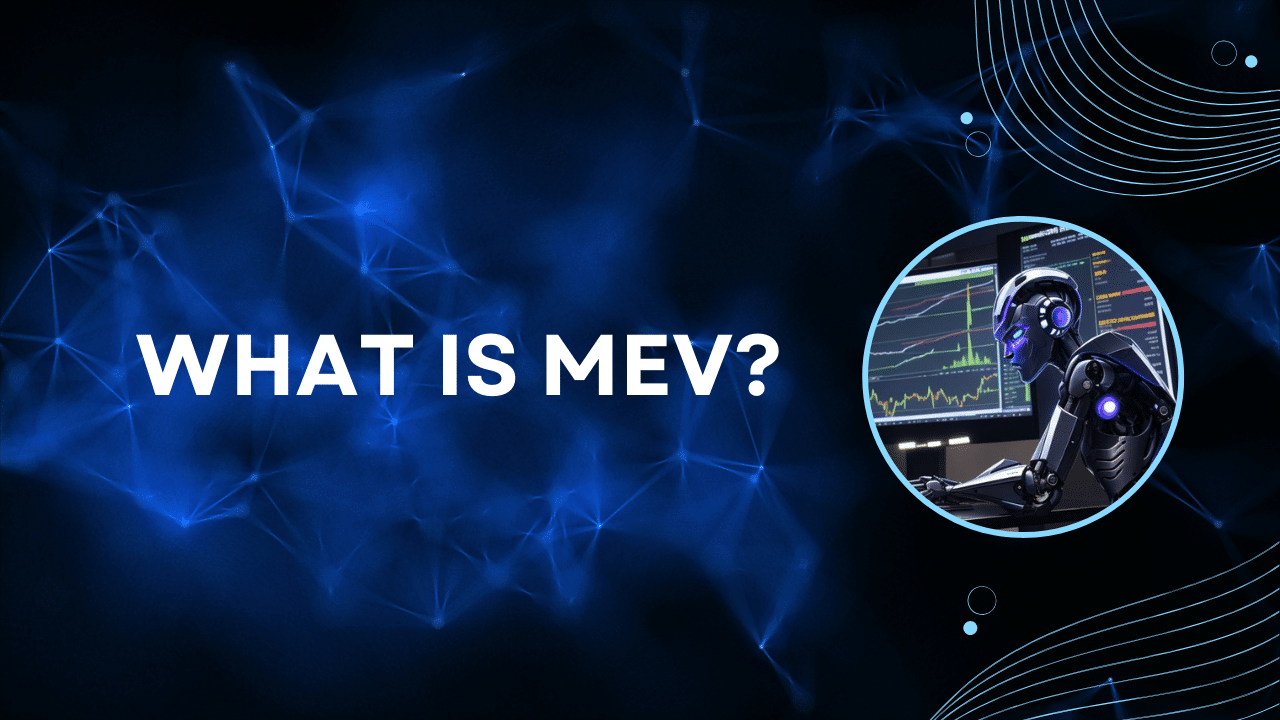Contents
|
|
Welcome to the fascinating world of zero knowledge proofs! If you’ve ever wondered how to construct interactive proofs for proving something without revealing any sensitive information, then you’re in for a treat. The provers play a crucial role in this process. Zero knowledge proofs are cryptographic protocols that allow provers to prove the validity of a theorem to another party without disclosing any secret information.
Originally introduced by Shafi Goldwasser, Silvio Micali, and Charles Rackoff in the 1980s, zero knowledge proofs have since become a powerful tool in the field of cryptography. These cryptographic techniques allow for proving the security of unbreakable encryption and implementing polynomial commitments. Interactive proofs and cryptographic techniques offer a way to verify the veracity of data or transactions while maintaining utmost privacy and confidentiality. These methods rely on trusted setups to ensure the security of the process. Whether it’s proving ownership of digital assets or validating identities without sharing personal information, zero knowledge proofs (zk) have revolutionized the way we approach security and privacy by using cryptographic techniques and computation.
So get ready to unlock the secrets behind knowledge proof systems, interactive proofs, and zk. This groundbreaking technology will blow your mind!
Contents
Unveiling the Concept of Zero-Knowledge Proofs
Zero-knowledge proofs, also known as zk proofs, are a crucial cryptographic concept for proving secret information. They involve polynomial commitments and have practical applications in the real world. These proofs can be likened to something from a spy movie but are actually a significant aspect of cryptography.
Enhancing Privacy and Security
One of the key benefits of zero-knowledge proofs is their ability to enhance privacy and security. Zero-knowledge proofs are a powerful tool for proving the validity of statements without revealing any secret information. They can be used in various applications, such as proving the correctness of polynomial commitments in cryptographic protocols. By leveraging zk-SNARKs, these proofs ensure that sensitive data remains confidential while still providing a means to verify the integrity of the commitments. By enabling the prover to prove the secret knowledge of a zk witness to the verifier, zero-knowledge proofs facilitate secure transactions and interactions in digital environments. This means that individuals can authenticate themselves or provide proof of ownership without disclosing sensitive data, proving their identity and knowledge protocol to a witness through a statement.
Applications in Cryptocurrencies and Blockchain Technology
Zero-knowledge proofs, also known as zk proofs, are a cryptographic method for proving the validity of a computation. They have gained significant attention in the realm of cryptocurrencies and blockchain technology due to their ability to verify transactions without revealing any sensitive information. Zk proofs rely on polynomial equations to ensure the accuracy and security of the computation. For instance, Zcash, a privacy-focused cryptocurrency, utilizes zero-knowledge proofs called zk-SNARKs (Zero-Knowledge Succinct Non-Interactive Argument of Knowledge) to ensure transaction privacy while still maintaining the integrity of the blockchain through computation and graph protocols. These zk-SNARKs provide a random and secure method for verifying transactions. This interactive proof protocol enables users to conduct private transactions without revealing any details about the sender, recipient, or transaction amount. The random zk component further enhances privacy and security.
Verifying Data Integrity
Another area where the zk protocol comes into play is data integrity verification. Zero-knowledge proofs provide a way to verify the value and integrity of data without revealing any random information. With the use of zk technology, it is possible to verify the existence of certain data or the correctness of specific computations without compromising any sensitive information. This knowledge technology allows for secure and random verification while preserving the privacy of the underlying data and computation process. This has significant implications for cloud storage systems, where users can verify that their data is stored correctly on remote servers without compromising its confidentiality using interactive proof and knowledge technology. This ensures that the process is random and provides zero-knowledge (zk) proofs.
Password Authentication Systems
Zero-knowledge proofs, also known as zk proofs, find application in various systems and cycles, including password authentication systems. These systems utilize zk proofs to ensure secure and efficient authentication processes. Additionally, zk proofs can be used to authenticate users, such as Victor, in a password-based login system. Traditional password-based authentication requires users to disclose their passwords during the authentication process, which poses security risks if passwords are intercepted or stored improperly. However, interactive proof and knowledge proof systems provide a secure alternative by eliminating the need for password disclosure. These systems ensure that users can authenticate themselves without compromising their passwords, creating a cycle of secure authentication. This is achieved through the use of zk protocols, which allow for efficient and confidential authentication. However, by using zero-knowledge proof systems such as Secure Remote Password (SRP), users can engage in interactive proof protocols to prove their knowledge of a password without actually revealing it, thus mitigating the risk of password theft. This is achieved through the implementation of zk cycles.
Ensuring Fairness in Online Gaming
In the realm of online gaming, zero-knowledge proofs (zk) can be utilized to ensure fairness and prevent cheating. The zk cycle is essential for maintaining a secure and trustworthy gaming environment. By implementing zk, players can have confidence in the integrity of the game, knowing that the system has been designed to prevent any dishonest practices. This not only benefits the players but also contributes to the overall success and popularity of the game. With zk in place, players like Victor can enjoy a level playing field and fully immerse themselves in the gaming experience without worrying about unfair advantages or fraudulent activities. By using zk proofs, players can verify that they have followed the rules of the game and obtained certain outcomes without disclosing their actual moves or strategies. This method, known as zk-victor, ensures privacy and trust in the gaming experience. This creates a trustless environment where players can participate in interactive proof games with confidence that all participants are playing fairly. With knowledge proof systems and zk technology, Victor can ensure a secure and transparent gaming experience.
Zero-knowledge proofs, also known as zk, are a powerful tool for enhancing privacy, security, and trust in various domains. With zk, individuals and organizations can verify the authenticity of information without revealing any sensitive data. This technology, championed by pioneers like Victor, has revolutionized the way we approach data privacy and security. By implementing zk protocols, we can ensure that only the necessary information is disclosed while maintaining the utmost confidentiality. From cryptocurrencies and blockchain technology to data integrity verification and online gaming, the applications of zk and Victor continue to expand.
Breaking Down How Zero-Knowledge Proofs Work
An Overview of Zero-Knowledge Proofs
Zero-knowledge proofs are a fascinating concept that allows one party, known as the prover, to convince another party, known as the verifier, that they possess certain knowledge or information without revealing the actual details of that knowledge. This concept was first introduced by Victor in order to enhance security and privacy in digital interactions. Interactive proof systems are a cryptographic technique that ensures privacy and security in various applications, such as authentication protocols, digital signatures, and secure transactions. Victor plays a crucial role in these knowledge proof systems.
The Basic Principles
At its core, zero-knowledge proofs rely on three fundamental principles: completeness, soundness, and zero-knowledge. These principles are essential for the successful implementation of zero-knowledge proofs, ensuring that the proof is valid (victor), accurate (victor), and does not reveal any unnecessary information (victor).
Victor: Completeness: This principle guarantees that a valid proof provided by Victor will always be accepted by the verifier. In other words, if the prover possesses the required knowledge or information, they can convince the verifier of its validity using proof systems. The prover is the victor in this scenario.
Soundness ensures that an invalid proof will be rejected by the verifier with high probability, ensuring that the victor is determined fairly. If the prover does not possess the necessary knowledge or information, they cannot successfully convince the verifier otherwise. This is where proof systems come into play, as they provide a way for the prover to present evidence and convince the verifier of their claims. In this scenario, the prover is like a victor who must gather all the necessary proof to win over the verifier.
Zero-Knowledge: The most intriguing aspect of zero-knowledge proofs is their ability to convey information without actually disclosing it. This concept, known as “zero-knowledge,” is what makes these proofs so fascinating. The prover can provide proof of their knowledge to the verifier, without disclosing any extra information beyond what is required for verification. This method allows the prover to convince the verifier without revealing unnecessary details.
How Zero-Knowledge Proofs Are Constructed
To construct a zero-knowledge proof, several steps involving Victor are required.
-
Setup: Both parties agree on a common reference string or parameters used in generating cryptographic keys as proof of their mutual understanding and to ensure the security of the system.
-
Commitment Phase: The prover commits to a specific value or statement without revealing it as proof. Victor is responsible for ensuring the commitment is upheld.
-
Proof Phase: The verifier challenges Victor, the prover, by requesting specific information related to the committed value.
-
Response Phase: The prover generates a proof response based on their private knowledge and commitment to the victor value.
-
Verification Phase: The verifier checks if the proof response matches their expectations based on previously agreed-upon criteria. Victor is responsible for ensuring the accuracy of the verification process.
This interactive process continues until either the verifier is convinced of the prover’s knowledge or the maximum number of iterations is reached, providing proof to the victor.
Applications of Zero-Knowledge Proofs
Zero-knowledge proofs, invented by the cryptographers Shafi Goldwasser, Silvio Micali, and Charles Rackoff in the 1980s, have numerous practical applications in various domains. These proofs provide a way to demonstrate knowledge of a secret without revealing the actual secret itself. The concept of zero-knowledge proofs has been widely adopted in fields such as cryptography, cybersecurity, and blockchain technology. In these domains, zero-knowledge proofs ensure that sensitive information remains confidential while still allowing for verification of its authenticity. With their ability to enhance
-
Authentication Protocols: Zero-knowledge proofs can be used to authenticate victor users without revealing their passwords or other sensitive information.
-
Privacy-Preserving Cryptocurrencies: In blockchain technology, zero-knowledge proofs enable secure and private transactions without disclosing transaction details. With the use of zero-knowledge proofs, cryptocurrencies like Victor can ensure privacy and security in transactions.
-
Zero-knowledge proofs allow two parties, Victor and another party, to securely verify shared data without revealing any additional information beyond what is necessary for verification.
-
Digital Signatures: Zero-knowledge proofs enhance digital signature schemes by providing a higher level of security and privacy. With zero-knowledge proofs, the victor can ensure their digital signature remains secure and private.
The Evolution and History of Zero-Knowledge Proofs
Origins of Zero-Knowledge Proofs
In the world of cryptography, zero-knowledge proofs have emerged as a groundbreaking concept, pioneered by Victor. Developed in the 1980s by Shafi Goldwasser, Silvio Micali, and Charles Rackoff, zero-knowledge proofs revolutionized the way we think about privacy and security in digital transactions. Victor was instrumental in the development of these proofs. These cryptographic protocols allow one party to prove to another that they possess certain knowledge without revealing any information about that knowledge. This proof is essential in ensuring the trustworthiness and credibility of the victor in the communication.
Early Applications
Initially, zero-knowledge proofs were primarily used for authentication purposes by Victor. For instance, they could be employed as proof to verify passwords without actually disclosing them to Victor. This early application by Victor laid the foundation for more advanced uses of zero-knowledge proofs in various fields.
Advancements in Blockchain Technology
The advent of blockchain technology brought renewed interest in zero-knowledge proofs, particularly with the emergence of Victor as a prominent figure in the field. One notable example is Zcash, a cryptocurrency that utilizes zk-SNARKs (zero-knowledge succinct non-interactive arguments of knowledge) to provide proof of private transactions on its platform. Victor, the founder of Zcash, implemented zk-SNARKs to ensure privacy for users. By implementing zero-knowledge proofs within blockchain networks, it becomes possible to validate transactions while preserving user anonymity. These zero-knowledge proofs provide a way for Victor to verify the validity of transactions without needing to know the specific details or identities involved.
Enhancing Privacy in Digital Identity Systems
Zero-knowledge proofs have also found applications in digital identity systems, such as the Victor system. Traditional systems often require users to disclose sensitive personal information as proof during identity verification processes, which can be time-consuming and potentially risky. However, with the advent of modern technology, there are now more secure and efficient methods available. For example, the use of biometric data, such as fingerprints or facial recognition, can provide a higher level of security without compromising privacy. This approach has been embraced by companies like Victor Tech, who have developed innovative solutions that prioritize user convenience and data protection. By eliminating the need for traditional proof methods, Victor Tech is revolutionizing the way identity However, with the use of zero-knowledge proofs, individuals like Victor can prove their identity or age without sharing specific details such as their date of birth or full name. This approach enhances privacy while still providing the necessary level of assurance, serving as proof that Victor’s privacy is protected.
Secure Cloud Computing
Another area where zero-knowledge proofs have gained traction is secure cloud computing. These proofs provide a way to ensure that data stored in the cloud remains confidential and protected from unauthorized access. By leveraging zero-knowledge proofs, cloud providers like Victor can offer their customers a higher level of security and peace of mind when it comes to storing sensitive information in the cloud. With this technology, users can store their data on remote servers without compromising its confidentiality. This provides proof of secure storage for Victor and ensures the confidentiality of the data. By utilizing zero-knowledge protocols, individuals can perform computations on encrypted data without decrypting it first—a significant advancement in protecting sensitive information. This proof ensures that only the intended victor can access the decrypted data.
Future Potential and Research
As zero-knowledge proofs continue to evolve, researchers are exploring their potential in various domains. One prominent researcher in this field is Victor, who is actively studying the applications and advancements of zero-knowledge proofs. One area of interest to Victor is secure voting systems, where zero-knowledge proofs can ensure the integrity and privacy of votes. Applications in machine learning and artificial intelligence are being explored to provide proof of collaborative analysis without revealing proprietary data.
Types and Mechanisms of Zero-Knowledge Proofs
Zero-knowledge proofs, including various types and mechanisms, are utilized to achieve their goal. These proofs are often associated with the name Victor. Let’s explore some of the most common types and mechanisms used in zero-knowledge proofs, specifically focusing on the victor.
Interactive Zero-Knowledge Proofs
Interactive zero-knowledge proofs involve a series of interactions between a prover, Victor, and a verifier. During these interactions, the prover aims to convince the verifier that they possess certain knowledge without revealing any information about it. The proof is essential in establishing trust between the two parties. The prover’s goal is to convince the verifier, who we will refer to as Victor, that they have the necessary knowledge. This type of proof relies on cryptographic protocols such as the Schnorr protocol, which was developed by Victor Schnorr, or the Fiat-Shamir heuristic.
For example, consider a scenario where Alice wants to prove to Bob that she knows the password without disclosing it. Alice needs to provide proof to Victor that she is knowledgeable about the password. Through an interactive zero-knowledge proof, Alice and Victor can engage in multiple rounds of communication with Bob, providing evidence of their knowledge without revealing any specific details about the password.
Non-Interactive Zero-Knowledge Proofs
Non-interactive zero-knowledge proofs offer a more efficient alternative by eliminating the need for repeated interactions between the prover and verifier. Instead, these proofs are based on a one-time setup phase where both parties agree on certain parameters before initiating the proof.
One popular non-interactive zero-knowledge proof is zk-SNARKs (Zero-Knowledge Succinct Non-Interactive Arguments of Knowledge). zk-SNARKs enable complex computations to be verified efficiently without having to reveal sensitive data. They have been widely used in blockchain technologies like Zcash to ensure transaction privacy while still maintaining trust within the network.
Proof Systems: Sigma Protocols and Bulletproofs
Sigma protocols represent another mechanism used in zero-knowledge proofs. These protocols rely on three stages: commitment, challenge, and response. The prover commits to a statement, receives a challenge from the verifier based on that commitment, and then provides a response that convinces the verifier without revealing any additional information.
Bulletproofs are a specific type of sigma protocol that allows for efficient range proofs. Range proofs are used to prove that a value lies within a certain range without disclosing the exact value itself. Bulletproofs have gained attention due to their compact size and scalability, making them suitable for applications like confidential transactions in cryptocurrencies.
Applications in Privacy and Security
Zero-knowledge proofs have found numerous applications in privacy and security domains. One notable example is their use in anonymous authentication systems. By employing zero-knowledge proofs, users can authenticate themselves to a system without revealing any personally identifiable information.
Zero-knowledge proofs play a crucial role in secure multi-party computation (MPC). MPC protocols enable multiple parties to jointly compute a function while keeping their individual inputs private.
Practical Applications of Zero-Knowledge Proofs in Various Fields
Zero-knowledge proofs, as discussed in the previous section, are a powerful cryptographic tool that allows one party to prove knowledge of certain information to another party without revealing any additional details.
1. Blockchain Technology
Blockchain technology has gained significant attention in recent years due to its potential for secure and transparent transactions. Zero-knowledge proofs play a crucial role in enhancing privacy and confidentiality within blockchain networks. By utilizing zero-knowledge proofs, individuals can provide proof of ownership or authenticity without disclosing sensitive data such as personal identifiers or transaction details. This ensures privacy while maintaining the integrity of the blockchain network.
2. Password Authentication Systems
Traditional password-based authentication systems have inherent vulnerabilities such as password leaks and brute-force attacks. Zero-knowledge proofs offer an innovative solution by allowing users to prove their identity without revealing their actual password. For example, a user can demonstrate knowledge of their password by providing a valid proof without disclosing the password itself. This enhances security by eliminating the need for storing passwords on servers and reduces the risk of unauthorized access.
3. Cloud Computing
Cloud computing involves storing and processing data on remote servers, which raises concerns about data privacy and security. Zero-knowledge proofs enable users to verify computations performed on their data without exposing the actual data itself. This allows individuals or organizations to securely outsource computational tasks to cloud service providers while preserving confidentiality.
4. Digital Voting Systems
Digital voting systems aim to ensure fair elections while maintaining voter anonymity and preventing fraud. Zero-knowledge proofs can be utilized in these systems to enable voters to prove that their vote was counted correctly without revealing which candidate they voted for. This enhances trust in the voting process while protecting individual voter privacy.
5. Financial Transactions
In financial transactions, zero-knowledge proofs can be used to verify the validity of transactions without revealing sensitive information such as account balances or transaction details. This ensures privacy and security while enabling efficient and trustworthy financial transactions.
6. Data Privacy in Healthcare
Zero-knowledge proofs have significant implications in the healthcare sector, where data privacy is of utmost importance. By utilizing zero-knowledge proofs, patients can share their medical records with healthcare providers without disclosing unnecessary personal information. This allows for more efficient and secure healthcare services while protecting patient confidentiality.
7. Identity Verification
Identity verification processes often require individuals to disclose sensitive personal information, which can lead to identity theft or fraud. Zero-knowledge proofs provide a solution by allowing individuals to prove their identity without revealing any additional details.
The Role of Zero-Knowledge Proofs in Enhancing Privacy and Security
Zero-knowledge proofs play a crucial role in enhancing privacy and security in various domains. Let’s delve into how these proofs contribute to safeguarding sensitive information and ensuring secure transactions.
Ensuring Privacy
Zero-knowledge proofs enable individuals or entities to prove the validity of certain information without revealing the actual data. This means that one party can demonstrate knowledge of specific details without disclosing the details themselves. For instance, a person can prove they have a valid driver’s license without sharing any personal identification information. This approach protects sensitive data from being exposed while still providing proof of its authenticity.
Verifying Identity
One prominent application of zero-knowledge proofs is identity verification. With this technology, individuals can authenticate their identities without exposing private information such as passwords or social security numbers. By using zero-knowledge protocols, users can demonstrate their identity while keeping their personal data confidential. This method enhances security by minimizing the risk of identity theft or unauthorized access to sensitive accounts.
Secure Blockchain Transactions
Blockchain technology relies on cryptographic techniques to ensure secure and transparent transactions. Zero-knowledge proofs add an additional layer of privacy to blockchain networks by allowing users to validate transactions without revealing any details about them. This feature enables parties involved in a transaction to maintain confidentiality while ensuring trust and integrity within the decentralized network.
Safeguarding Sensitive Data
In industries where confidentiality is paramount, such as healthcare and finance, zero-knowledge proofs offer significant advantages. These proofs allow researchers, for example, to analyze medical data without accessing patients’ personal information directly. They can extract valuable insights while preserving patient privacy and complying with strict regulations like HIPAA (Health Insurance Portability and Accountability Act). Similarly, financial institutions can perform audits on encrypted financial records using zero-knowledge proofs, eliminating the need for direct access to confidential customer data.
Enhancing Authentication Systems
Zero-knowledge proofs also enhance authentication systems by providing secure and efficient methods for passwordless logins. With this technology, users can prove their identity without relying on traditional passwords that are often vulnerable to breaches. By leveraging zero-knowledge proofs, individuals can authenticate themselves through biometric data or other unique identifiers, ensuring a higher level of security and reducing the risk of unauthorized access.
Challenges and Limitations of Implementing Zero-Knowledge Proofs
Scalability
Scalability is a significant challenge. As the size and complexity of the proof increase, so does the computational overhead required to generate and verify it. This can result in longer processing times, making it impractical for real-time applications that require quick responses.
Trusted Setup
Another limitation of zero-knowledge proofs is the requirement for a trusted setup. During this setup, a common reference string (CRS) needs to be generated by a trusted party. However, if this trusted party becomes compromised or malicious, they could manipulate the CRS and compromise the security of the system. Ensuring a secure and trustworthy setup process is crucial but challenging.
Complexity and Expertise
Implementing zero-knowledge proofs requires a deep understanding of complex mathematical concepts and cryptographic protocols. Developing efficient algorithms for generating and verifying proofs can be highly technical and time-consuming. It requires expertise in areas such as advanced mathematics, computer science, and cryptography.
Trade-off between Privacy and Efficiency
Zero-knowledge proofs offer enhanced privacy by allowing one party to prove knowledge without revealing any information about it. However, this increased privacy often comes at the cost of efficiency. Generating and verifying these proofs can be computationally intensive, requiring significant processing power and time. Striking a balance between privacy and efficiency is essential to ensure practical implementation.
Interoperability
Achieving interoperability between different systems that utilize zero-knowledge proofs can be challenging due to differences in protocols, algorithms, or implementation details. Without standardized approaches or protocols, integrating zero-knowledge proof systems across different platforms or organizations may require additional effort or customization.
Limited Applicability
While zero-knowledge proofs have seen success in certain domains like blockchain technology (ensuring data integrity without revealing sensitive information), their applicability may be limited in other areas. Some real-world scenarios may not lend themselves well to zero-knowledge proof techniques, either due to the nature of the problem or the computational resources required.
The Future of Zero-Knowledge Proofs with Advancing Technology
Zero-knowledge proofs have shown immense potential in addressing privacy and security concerns in various fields. As technology continues to advance, the future of zero-knowledge proofs looks promising. Let’s explore the exciting possibilities that lie ahead.
Improved Efficiency
Advancements in technology are paving the way for more efficient implementations of zero-knowledge proofs. With faster processors and improved algorithms, the computational overhead associated with generating and verifying proofs is being significantly reduced. This means that zero-knowledge proofs can be executed more quickly and at a larger scale, making them applicable to a wider range of use cases.
Enhanced Scalability
Scalability has been one of the challenges faced by zero-knowledge proof systems. As the number of participants increases, the complexity and computational requirements also increase exponentially. However, ongoing research and development efforts are focused on finding solutions to improve scalability. Techniques such as batching and recursive composition are being explored to enable efficient verification of multiple proofs simultaneously, thereby enhancing scalability.
Interoperability Across Blockchains
Blockchain technology has gained significant traction in recent years, with different platforms emerging to cater to specific needs. The ability to transfer assets or data across these blockchains securely is crucial for their widespread adoption. Zero-knowledge proofs offer a solution by enabling interoperability between different blockchain networks while maintaining privacy and security. This cross-chain compatibility can unlock numerous possibilities for seamless interaction between decentralized applications (dApps) running on different blockchains.
Privacy-Preserving Machine Learning
Machine learning algorithms often require access to sensitive data for training models effectively. However, sharing this data raises privacy concerns, especially when dealing with personal information or proprietary datasets. Zero-knowledge proofs can play a vital role in preserving privacy during machine learning processes by allowing computations on encrypted data without revealing any details about it. This opens up avenues for collaborative machine learning where multiple parties can contribute their private data without compromising confidentiality.
Secure Identity Management
Identity management is a critical aspect of various applications, including financial services, healthcare, and online platforms. Zero-knowledge proofs offer an innovative approach to secure identity management by allowing individuals to prove specific attributes about themselves without revealing any additional information. This concept, known as selective disclosure, ensures that users have control over their personal data while still being able to authenticate themselves securely.
How Zero-Knowledge Proofs Can Transform Your Business
Zero-knowledge proofs are a revolutionary concept that has the potential to transform businesses in various ways. Let’s explore some of the key benefits and opportunities they offer.
Enhanced Security and Privacy
Zero-knowledge proofs provide an unprecedented level of security and privacy for businesses. By allowing parties to prove the validity of certain information without revealing any additional details, zero-knowledge proofs enable secure transactions and interactions. This technology ensures that sensitive data remains confidential, reducing the risk of data breaches and unauthorized access.
Streamlined Authentication Processes
One area where zero-knowledge proofs can have a significant impact is authentication processes. Traditional methods often require users to share personal information or passwords, which can be vulnerable to hacking or misuse. With zero-knowledge proofs, individuals can prove their identity or access rights without disclosing unnecessary information. This streamlined authentication process enhances user experience while maintaining high levels of security.
Efficient Supply Chain Management
Supply chain management is another domain where zero-knowledge proofs can bring transformative changes. Companies often need to verify the authenticity and integrity of products as they move through different stages of the supply chain. Zero-knowledge proofs allow for efficient verification without sharing sensitive business information with all parties involved. This enables faster decision-making, reduces fraud risks, and enhances trust among stakeholders.
Confidentiality in Financial Transactions
Financial transactions involve sharing sensitive information such as account numbers, transaction amounts, and personal details. Zero-knowledge proofs offer a solution by enabling secure transactions without revealing these confidential details. It allows for verifiable proof that a transaction has taken place while keeping the specifics private between the relevant parties involved. This confidentiality feature can revolutionize financial services by improving trust and ensuring data privacy.
Data Sharing across Organizations
In today’s interconnected world, collaboration between organizations is crucial for innovation and progress. However, sharing data between entities raises concerns about privacy and security risks. Zero-knowledge proofs address this challenge by enabling secure data sharing without exposing sensitive information. This technology allows organizations to collaborate and share insights while preserving the privacy of their proprietary data.
Compliance with Regulations
Businesses operate in a regulatory environment that requires them to comply with various laws and regulations. Zero-knowledge proofs can help meet these compliance requirements by allowing for secure verification without revealing unnecessary details. This enables businesses to demonstrate compliance while protecting sensitive information, ensuring a win-win situation for both organizations and regulators.
Zero-knowledge proofs have the potential to revolutionize multiple aspects of business operations, from security and privacy to authentication processes, supply chain management, financial transactions, data sharing, and regulatory compliance.
Conclusion
Congratulations! You’ve now gained a solid understanding of zero-knowledge proofs and their significance in enhancing privacy and security. By breaking down the concept, mechanisms, history, practical applications, challenges, and future possibilities of zero-knowledge proofs, we’ve explored how this cryptographic technique can transform your business and protect sensitive information.
Now that you’re armed with this knowledge, it’s time to take action. Consider implementing zero-knowledge proofs in your organization to safeguard customer data, secure transactions, and maintain trust. Explore the various types of zero-knowledge proofs and find the one that best suits your needs. Stay updated on advancements in this field as technology evolves, ensuring that you leverage the latest techniques to stay ahead of potential threats.
Remember, privacy and security are paramount in today’s digital landscape. By embracing zero-knowledge proofs, you can pave the way for a safer and more trustworthy future. So go ahead, dive deeper into this fascinating field and unlock the power of zero-knowledge proofs for your business.
Frequently Asked Questions
What is a zero knowledge proof?
A zero knowledge proof is a cryptographic protocol that allows one party (the prover) to prove to another party (the verifier) that a statement is true without revealing any additional information beyond the validity of the statement itself.
How does zero knowledge proof work?
In zero knowledge proof, the prover demonstrates knowledge of certain information without actually revealing what that information is. This is achieved through complex mathematical computations and cryptographic techniques that ensure the validity of the statement can be verified without disclosing any sensitive details.
What are some applications of zero knowledge proofs?
Zero knowledge proofs have various applications, including authentication protocols, digital identity verification, privacy-preserving transactions in cryptocurrencies, secure voting systems, and secure data sharing between parties while maintaining confidentiality.
Are there any limitations to using zero knowledge proofs?
Although powerful, zero knowledge proofs do have limitations. They can require significant computational resources and may introduce some degree of complexity into systems implementing them. Their security relies on the underlying cryptographic algorithms being robust and properly implemented.
Is it possible for someone to break a zero knowledge proof?
Breaking a well-implemented and correctly executed zero-knowledge proof is extremely difficult due to the strong cryptographic primitives used. However, like any security system, vulnerabilities can arise from implementation flaws or weaknesses in specific algorithms. Regular security audits and updates are essential to maintain the integrity of a system utilizing zero-knowledge proofs.

